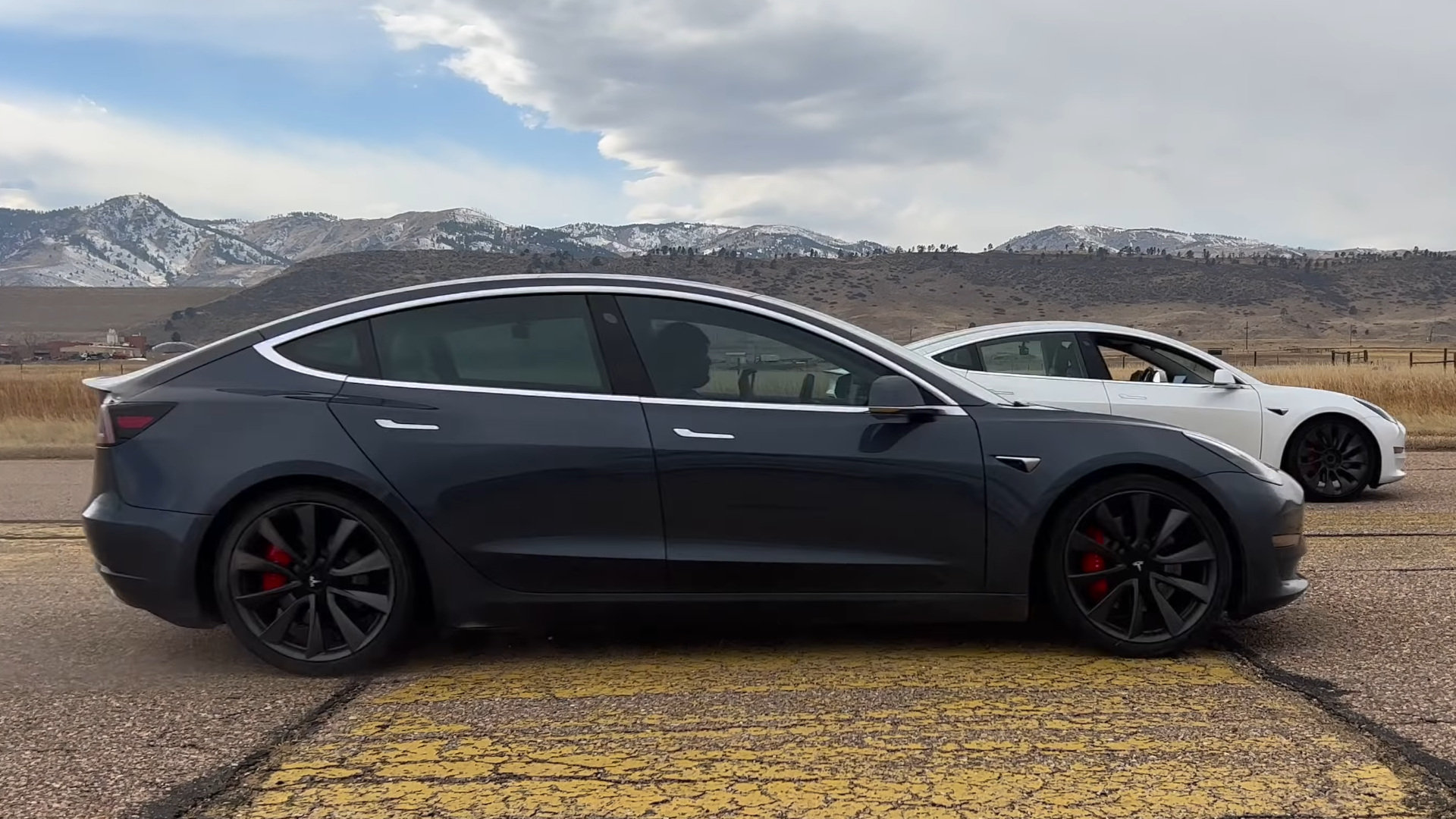

Just as an engine with more miles tends to gradually lose performance over the years, an EV battery subject to many charge cycles can degrade over time. Critics often overstate the magnitude of the effect, but this video from YouTube channel Out of Spec Reviews decided to do a practical test to get some real data.
As covered by InsideEVs, the video puts two Tesla Model 3 Performance models to the test. One is a 2019 model with 100,000 miles on the clock, while the other is a 2020 car with just 30,000 miles. The cars are very close in specification with just a few minor differences, and each started the test at the same state of charge to ensure a fair contest. The aim was to determine the impact of high mileage on an EV’s acceleration.
The cars were pitted against each other in a 0-120 mph acceleration test, and a further trial involving a roll race from 30 mph. Both cars performed near-identically despite the older vehicle having over three times the mileage on the battery. It’s quite something to watch the two cars level-pegging throughout the race, neither one pulling away from the other, finishing virtually neck-and-neck.
Notably, the Tesla software itself indicated the 2019 car had experienced a 10% degradation in capacity and range over time, though this seemingly hadn’t had a major effect on its ability to deliver current.

However, as testing continued and the cars were run over and over again, the younger vehicle began to take the lead. The batteries remained within 1% state of charge of each other throughout testing, leading the reviewers to conclude that poorer thermal performance could be the reason the older car began to deliver less power over time.
In any case, the differences after five or more runs were still small, on the order of a couple of car lengths at worst. It’s thus clear that even with 100,000 miles on the clock, the battery in the Tesla Model 3 Performance has not degraded by a large degree. It’s something that will buoy the spirits of EV buyers that are worried about how their vehicle will perform years down the track.
Got a tip? Let the author know: lewin@thedrive.com